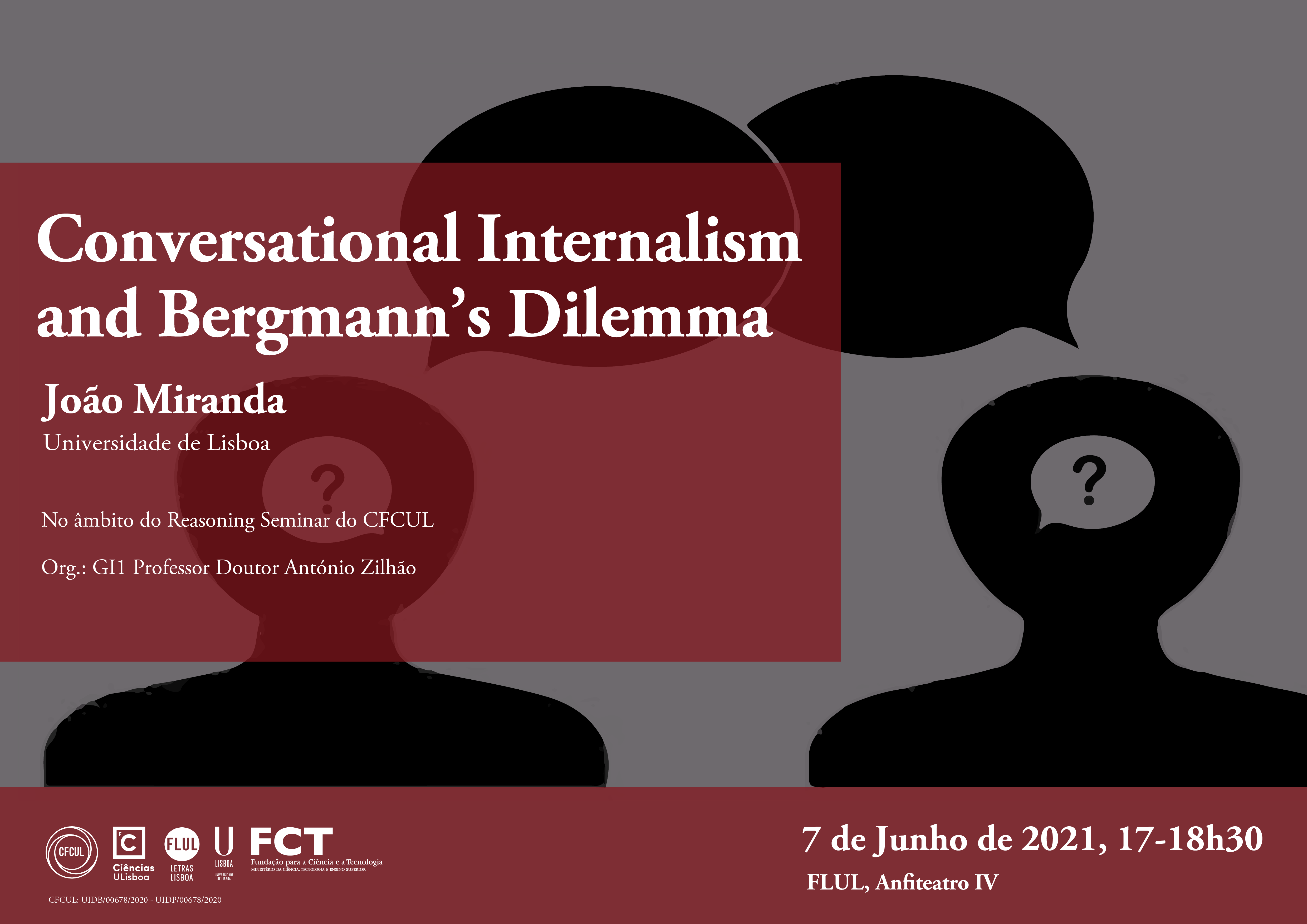
Abstract Conversational Internalism is the view according to which an agent has doxastic justification for p only if she has reasons for p relative to a question and is able to use those reasons to respond to that question. According to Conversational Internalism, first-person access gets its epistemological relevance from conversations because the ability to adequately intervene in conversations is what is required to make a belief justified, and you can’t adequately intervene in a conversation without being aware of what you’re conversing. The theory is internalist, but, at the same time, avoids classical objections to internalism. It does this by focusing on being able to access (instead of actual access) and by relativizing justification to questions.
In the first part of the talk, I’ll characterize the theory (by embedding it in a contrastive framework) and explore some of its features. In the second half, I’ll respond to an objection by Michael Bergmann (2006). Bergmann put forth a dilemma according to which either internalism is committed to infinite regresses or it is unmotivated. I’ll defend the first horn of the dilemma, by showing that, in virtue of relativizing justification to questions, Conversational Internalism can avoid falling prey to infinite regresses, while still being able to make sense of the idea that awareness has a role to play in justification.